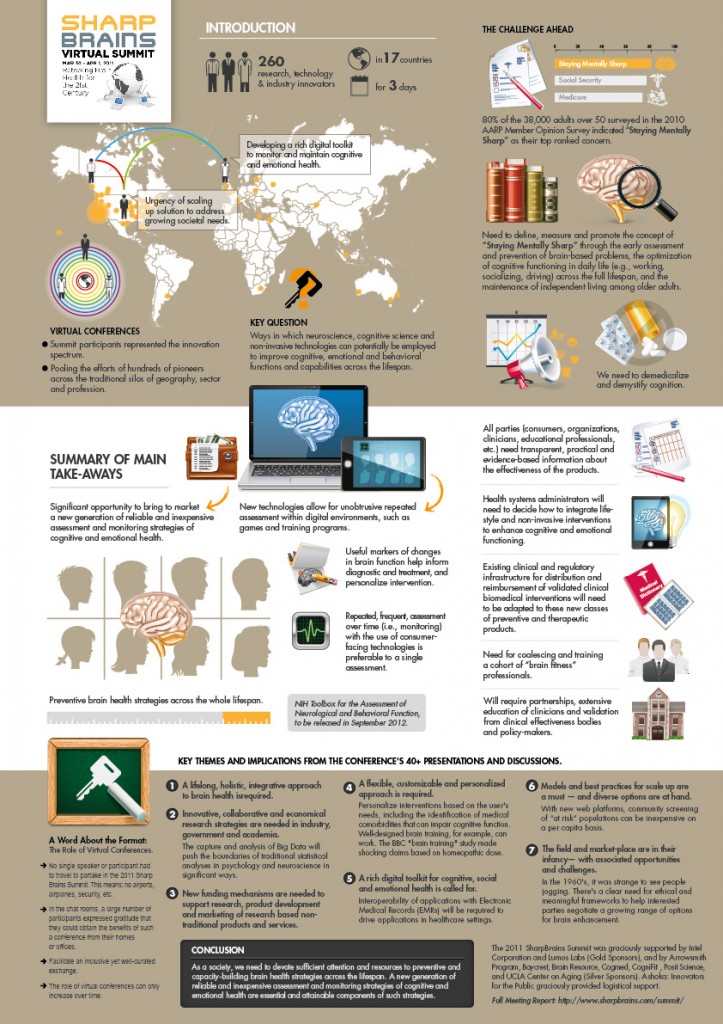Posts Tagged ‘brain-gym’
Workouts at the (New Yorker) brain gym
Good article on brain fitness and applied neuroplasticity in the July 29th edition of The New Yorker, featuring many SharpBrains friends. Mentally fit — Workouts at the brain gym: “As recently as a few decades ago, most biologists thought that the brain was fully formed during childhood and, like a photograph after it’s been developed, was…
Read MoreDo you believe these neuromyths? Do we only use 10% of our brain?
Courtesy of the recent study Neuromyths in education: Prevalence and predictors of misconceptions among teachers, by Sanne Dekker et al, here you have 32 brain-related statements. Are they correct or incorrect? We use our brains 24 h a day (C ). Children must acquire their native language before a second language is learned. If they do…
Read MoreWhy Agile Minds Deploy Both Rational and Intuitive Problem-Solving
A rare aha moment in 2011 set me chasing new problem-solving research. The study Rational Versus Intuitive Problem-Solving: How Thinking ‘Off the Beaten Path’ Can Stimulate Creativity published in Psychology of Aesthetics, Creativity, and the Arts stung me out of a spot of intellectual arrogance. From my perspective, John Dewey’s 19th century step-wise
Read MoreTranscript: Online Q&A on the Future of Brain Health with Alvaro Fernandez
Below you can find the full transcript of our engaging Q&A session today, Friday March 16th, on brain sustainability, retooling brain health, and applied neuroplasticity, with Alvaro Fernandez, SharpBrains’ Co-Founder who’s just been named a Young Global Leader by the World Economic Forum. You can learn more about the topic by reading this 2011 SharpBrains Summit…
Read MoreMichael Merzenich on Brain Training, Assessments, and Personal Brain Trainers
Interview with Dr. Michael Merzenich, Emeritus Professor at UCSF, a leading pioneer in brain plasticity research. In the late 1980s, Dr. Merzenich was on the team that invented the cochlear implant. In 1996, he was the founding CEO of Scientific Learning Corporation (Nasdaq: SCIL), and in 2004 became co-founder and Chief Scientific Officer of Posit Science. He was elected to the National Academy of Sciences in 1999 and to the Institute of Medicine this year. He retired as Francis A. Sooy Professor and Co-Director of the Keck Center for Integrative Neuroscience at the University of California at San Francisco in 2007. You may have learned about his work in one of PBS TV specials, multiple media appearances, or neuroplasticity-related books.
Read MoreBrain Health News: Top Articles and Resources in March
There’s such a flood of very significant research studies, educational resources and articles related to brain health, it’s hard to keep track — even for us! Let me introduce and quote some of the top Brain Health Studies, Articles and Resources published in March: 1) Cognitive Decline Begins In Late 20s, Study Suggests (Science Daily) — “These patterns…
Read More



